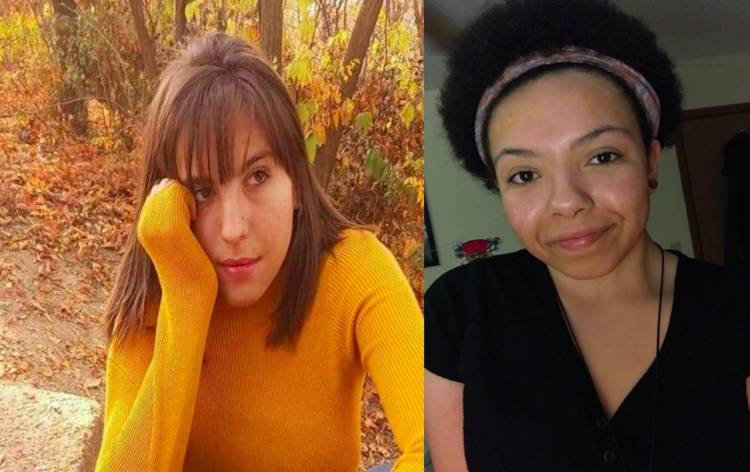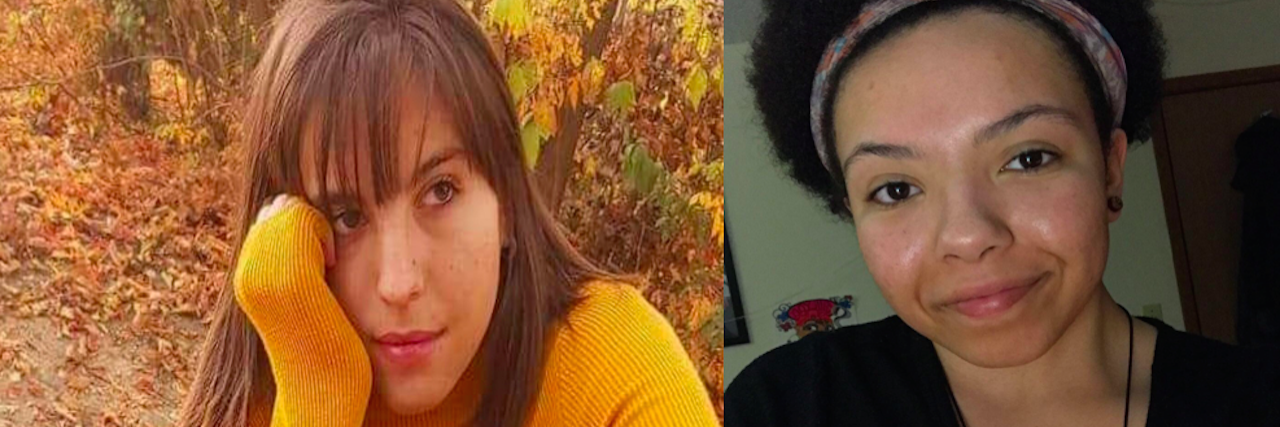A while ago, Klippel-Feil Syndrome Freedom announced the US Pain Foundation was looking for people who would share about their lives dealing with chronic pain — so I submitted my video about living with KFS. I received a message from someone I didn’t know. The message said, “Hi! I don’t know if you have noticed, but I have the same disability (KFS) as you have. It’s rare to find someone with the same problem so I am kind of delighted to find you. I hope it’s not a problem that I write you.” Overfilled with joy, I didn’t hesitate to reply. Just in the first few texts between us, I could tell she was different than people I’ve spoken to before.
Luca Farkas, a young Hungarian village girl, has gone through more than 50 surgeries. She is only 16 , but she’s undoubtedly been through more than most peers her age. I’m 17, and I’ve never met someone with these types of serious health issues (other than myself) who’s just as positive, if not moreso.
Neither of us have been able to relate to others our age, or meet others with our rare condition. It’s so interesting to learn how it affects everyone a bit differently, especially since it is such a complex condition. Until recently, the research on Klippel-Feil syndrome regarding how it connects to other health issues hasn’t been well understood by doctors. Despite her medical history, Luca is definitely a memorable person in my book. I was ecstatic when Luca gave me permission to share about our connection.
With a welcoming shy smile, soft hazel eyes, and beautiful brown hair to match — she’d sure stop anyone in their tracks. Since Luca grew up in a village, she’s naturally formed a very strong bond with family and friends. Although she’s always had constant support from the ones she loves, growing up for Luca wasn’t always fun and easy days. A large part of her time was spent in hospitals with doctors poking her and trying to figure her out. Even with her joy-filled childhood, there were still cold and lonely moments rooted from the pain. Moments where she’s had to learn to appreciate life and put all her trust in God. Regardless, all these things never stopped her from smiling and being grateful for the life she does have. That’s truly amazing, I would say.
Similar to many others who live with KFS, Luca struggles with multiple challenges: physical, emotional, and mental. KFS is a musculoskeletal disease causing abnormal fusing of the vertebrae, neck and spine. It can limit movement and cause a list of other symptoms. These symptoms vary from person to person. With the disease resulting from genetic mutations, there’s no telling what may happen.
Luca struggled with confidence, like many young kids facing painful rare diseases. In addition to KFS, she has also been diagnosed with hypertonia, or excess muscle tone in the limbs. Hypertonia causes the muscles in your body to be much more tense than normal. This makes it more difficult to move and control your movements at times. It also greatly affects Luca’s digestion. “My hypertonia influenced my everyday in the past. I used to vomit blood, and had to be operated on several times. I had a list of food to avoid (which irrtated my gullet),” Luca told me as I tried to not imagine the pain. She had to take medicine in order to maintain this disease while she was younger. Luca assured me she grew out of the vomiting stage. I was happy to hear that story ended on a high note.
As we talked some more, she shared some personal stories of how her disease has impacted her the most. “I was born with my KFS, but it got harder in my teenage years to cope with it mentally, as I don’t really have luck with boys.” My heart twinged, understanding the feeling of rejection. “I thought I was ugly. People see my conditions. My face is asymmetrical. I don’t wear ponytails and try to hide my hair when the wind blows. My neck looks tiny and strange too. My hearing is not perfect. I had a sixth finger on my right hand but it was operated when I was about 3 years old.” Luca struggled with self-confidence from fifth to eighth grade. She tried to have a rolling bag in fifth grade, but the kids made so much fun of it. “I hated it too. I didn’t want to look different. Now I have the ‘normal’ backpack, but it’s heavy as shit,” she said. I appreciated the honesty. I also knew personally, after years of living with KFS that carrying bags was no joke. Despite her S-curved spine, she didn’t want to be different from anyone else. She continued on like the rest of the crowd.
Many physicians may say that KFS doesn’t cause pain, but it does, and diseases which may accompany KFS can cause even more pain. As a way to approach treatment, Luca has been attending physiotherapy for the past 13 years. Physiotherapy is much like physical therapy. They look at your condition plus its history, and then assign which exercises and devices will work best for you. Many people with musculoskeletal diseases have to take a gentle and consistent approach with treatment. Vigorous movements and strain can just lead to even more complications.
Dealing with such a personal subject, I was happy Luca was comfortable enough to open up about what’s most frustrating with chronic illnesses. “When I fall in love with someone who doesn’t reciprocate, I just can’t help but think it’s due to my condition,” Luca said. I could tell this message wasn’t as light as others. When she said this, there was another twinge of sadness inside me. I understood this feeling all too well. Comparing yourself to the able-bodied kids around you and wondering why you can’t do the same simple things without looking different. Luca told me some more about her confidence and what slowly chipped it away. She had a sixth finger which was removed when she was younger, several reconstruction surgeries on her ear, and a shorter than average height and neck length. With my background in this condition, none of these things seemed strange to me. The silent inner struggle of a child being different is hard, and even harder when there’s no explanation or solution for it. Most times it’s not the pain which is the worst part — it’s the mental strength needed to continue.
“I had to say goodbye to my parents when they took me to the hospital after vomiting. Oh. Those were hard times. Actually, I am used to the physical pain. The hard times were played in my head, like when I was laying on the surgical beds in the cold and shaking with fear,” Luca explained. Moments like these are reminders of how much people with chronic illnesses go through alone.
After listening to Luca Farkas’ story, you realize it’s not just the ability to go through 50 surgeries that’s remarkable, but the attitude you have after it’s said and done. Deciding that you want to be a positive person is powerful. Luca chooses to show the world the love inside her, despite the cards she’s been handed, even if the cards are a body that picks and chooses the days it wants to function. The small moment in time that Luca chose positivity over everything else truly pointed her life towards something amazing.
“When I was alone in the hospital as a little child, I thought about God and asked him for help. I was, am, and will always be a positive person. To me, it is the key to everything, I guess,” she exclaimed.
Creating a video for National Pain Awareness helped me rebuild my confidence after yet another cervical fusion surgery. It helped me open up about my challenges and understand it’s OK to be vulnerable. I am so lucky to have had someone as sweet as Luca to reach out to me. With such a simple message, it created a new friendship despite being countries apart — and that is truly rare.


